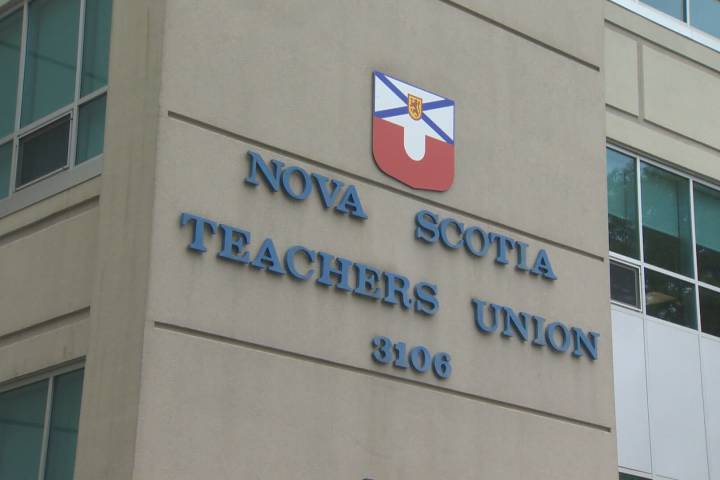An arbitrator has found that school social workers, school psychologists, and speech language pathologists must be included in the Nova Scotia Teachers Union (NSTU), according to documents obtained by Global News.

In 2018, the province said it would continue to hire specialists, but would no longer require them to be certified as teachers. The province announced it would be hiring six school psychologists and speech language pathologists as part of a plan to overhaul inclusion. In all, the union says 60 people were affected, including workers without permanent contracts.
The NSTU filed a grievance over the issue in June 2018, accusing the government of “unilaterally changing” the teachers’ certification system to exclude specialists.
READ MORE: N.S. school psychologists, speech pathologists raise concerns over hiring of non-union workers
Arbitrator Eric Slone’s ruling restores the specialists to the NSTU and orders the government to reimburse the union for lost dues plus interest.
“The parties should have a reasonable amount of time to plan for these changes,” Slone’s ruling reads.
“I will leave it to them to determine what is feasible, but I believe that all necessary steps should have been completed well before the start of the 2020-21 school year.”
- Porter flight from Edmonton loses traction, slides off taxiway at Hamilton airport
- Trump keeps carveout under CUSMA in new 10 per cent global tariff
- Coffee-hockey combo — or breakfast beers? — for bleary-eyed Olympic fans
- Free room and board? 60% of Canadian parents to offer it during post-secondary

Before June 2018, non-teaching professionals were required to obtain a special teacher certification from the province in order to work in the school system. They were also members of the NSTU.

Get breaking National news
The province said it was making the changes based on recommendations from the Commission on Inclusive Education.
The NSTU also claims the changes would make it difficult to recruit for new positions, fill open positions, and retain professionals currently in the positions.
In a notice to members, NSTU president Paul Wozney calls it “good news.”
“As we said from the beginning it was unlawful for (government) to stop granting teaching permits to specialists,” Wozney said in the statement. “This decision confirms the government’s unilateral actions did not respect the rights of teachers and specialists or comply with longstanding mutual agreements or labour law principles.
“That being said, NSTU is always committed to working with government towards meeting the needs of all students.”
READ MORE: Nova Scotia Teachers Union accusing province of changing teacher certification system
Slone’s ruling found that the refusal to grant special certificates was “wrong and violated the rights of the union.”
“The decision to stop issuing special certificates — with all of the consequences that flow from that — is a clear example of what the Employer (education department) has bound itself not to do,” the decision reads.
“It is a heavy onus on the Employer to prove that the composition of the bargaining unit has changed, or that it never was what the union contends.
“The Employer has not met that onus.”
Slone concluded by noting that the integrity of that bargaining unit must be respected,
“All affected employees must have restored to them the benefits of collective bargaining that have been legislated and negotiated on their behalf.”
In a statement, Labour Relations Minister Mark Furey called the decision “disappointing,” and said the department will review the decision and determine its next steps.
“Our goal with these positions is to provide year-round support for students and families and help to reduce waits for services such as school psych assessments,” Furey stated. “In their first summer, the new positions provided services to more than 300 students and/or families.
“We know students’ needs don’t end with the school year.”
— With files from Sarah Ritchie.








Comments
Want to discuss? Please read our Commenting Policy first.